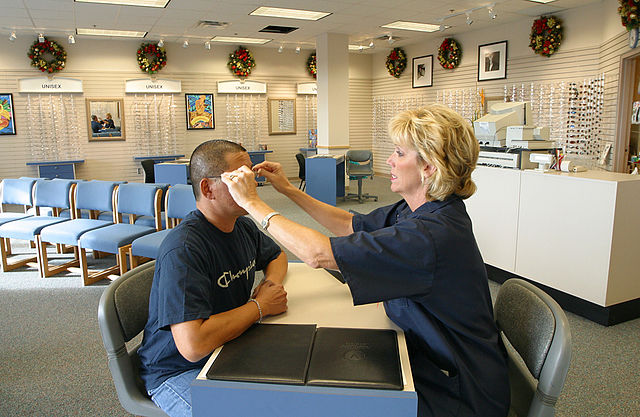The Difference between Optometrist, Optician and Ophthalmologist
“What we see depends mainly on what to look for.”
-John Lubbock
How’s your vision? Are you searching for someone to help you with your eyesight problems? The above quote from John Lubbock clearly states that, it depends on what you are looking for. So whether you need a prescription, a general eye check up or an eye surgery, there are specific eye care professionals for different eye care needs. In the complex and exceptional world of human vision, there are three different professionals – the Optician, the Optometrist and the Ophthalmologist. Knowing the differences between these three can help you make more informed decisions when you are in need of vision care. So to help you know whom to turn to with your eye care needs, here are the three main types of eye care professionals and how they differ from each other.
Optician
Opticians are professional technicians trained to fill prescription for eyeglasses. They usually work together with the eye care team to help provide a well-rounded of vision care solutions. They assist with eye exams and eye prescriptions. After which, Opticians help grind the lenses, assist with the choice of frames that will best fit you. They are also the ones who adjust frames for proper fit. This is very essential because the eyeglasses should rest correctly before your eyes, on the bridge of the nose for optimum visual experience.
An Optician does not need to have intensive education to be trained for this profession. Being an optician does not require a degree or a certain amount of hours as an internship. All they need to have is a certified training for few years.
Optometrist
Optometrist carries the letter OD (doctor of optometry). They are the first of the ocular team to consult to when you have problems with your eyes. They are licensed and trained to examine, diagnose and treat specific eye conditions and ocular abnormalities. They are the ones who prescribed corrective lenses or refer clients who need advance eye care needs to ophthalmologists. Generally, optometrists are certified to provide primary care and even secondary eye care but are not allowed to perform tertiary vision care (surgical procedures).
Ophthalmologists complete an undergraduate college education followed by a four years education in an optometry school. They can pursue postgraduate studies and specialize in specific types of eye care. Here are some of the following to name a few:
- Family Eye care
- Optometry
- Vision Rehabilitation
- Sports Eye Care
Ophthalmologist
The Ophthalmologist is known as the “eye doctor”. They are board certified doctors who specializes in ocular care. They can provide a full spectrum of eye care – from initial eye examination up to complicated eye surgeries.
Ophthalmologists complete four years of undergraduate degree, 4 years of medical school and a full year of internship. In addition, another 5 years of hospital-based residency in ophthalmology must be completed. During the residency, they are trained to in all aspects of ocular and vision care – primary, secondary and tertiary care. They are trained for medical and surgical treatment of the eyes. There are some ophthalmologists who choose to sub-specialize in different field. They must have additional education and hospital based trainings. Some of them sub-specialize in the following:
- Retina
- Cornea
- Glaucoma
- Oculo-plastic
- Optic Nerve
- Pediatrics
- Refractive Surgery
- Pathology
The eyesight is very essential for total well being. These three ocular professionals who make it their duty and passion to render health care for the human eyes. They work as a team to give their best to address issues regarding the eyesight. Regardless what needs you have they are the keys in maintaining good vision and see a brighter future.
- Difference Between Vascular Cambium and Cork Cambium - November 1, 2023
- Difference Between DevOps and Developer - September 10, 2023
- Difference Between Acute Gastritis and Chronic Gastritis - April 3, 2023
Search DifferenceBetween.net :
 Email This Post
: If you like this article or our site. Please spread the word. Share it with your friends/family.
Email This Post
: If you like this article or our site. Please spread the word. Share it with your friends/family.
Leave a Response
References :
[0]https://www.youtube.com/watch?v=y1etMXx4V-4
[1]http://www.aapos.org/terms/conditions/132
[2]http://www.djo.harvard.edu/site.php?url=/patients/pi/439
[3]http://www.lasik.com/articles/ophthalmologist-optometrist-optician
[4]http://en.wikipedia.org/wiki/Optician


